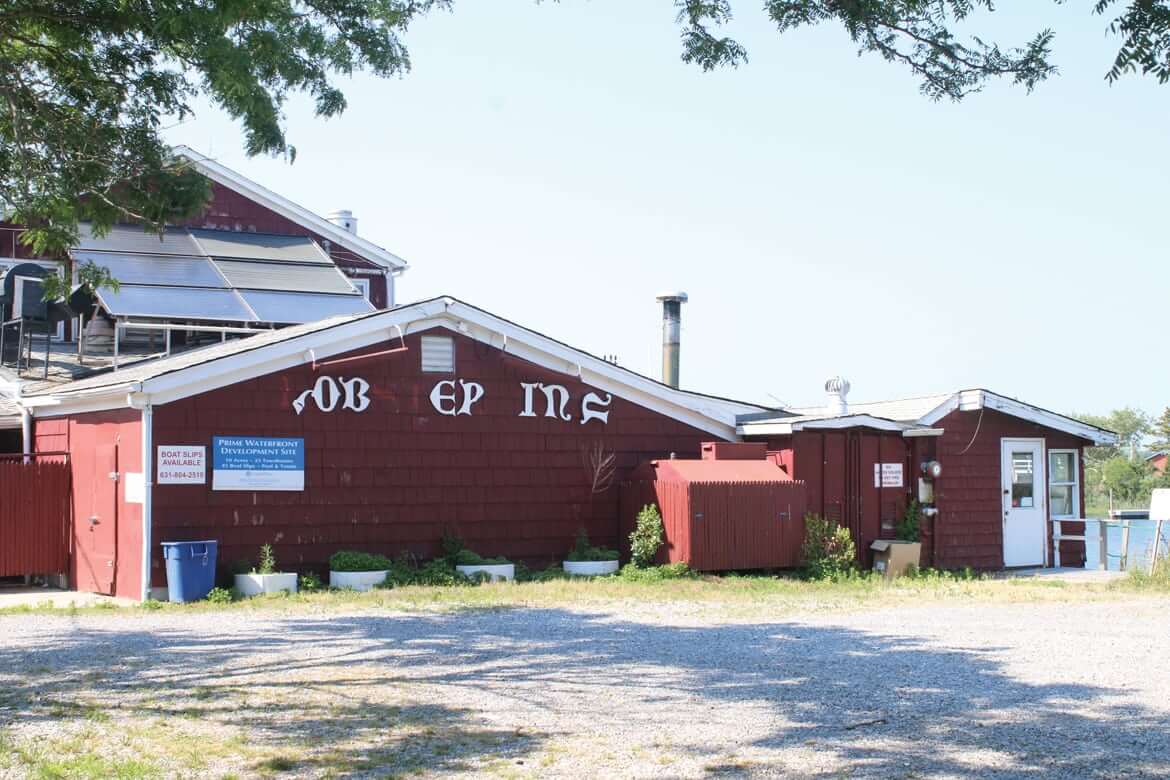Government Briefs

Lobster Inn Deal Inked
Southampton Town Supervisor Jay Schneiderman has signed off on a roughly $8.3 million deal to purchase about 10 acres of land in Shinnecock Hills that are either part of or adjacent to the shuttered Lobster Grille Inn restaurant with money from the Community Preservation Fund.
Included in the deal, which is with owners Peconic Bay Marina LLC and Peconic Bay Residence LLC, are a series of parcels that will be preserved, ensuring the protection of water quality along Cold Spring Pond and Great South Bay, as well as their development rights, which will be used on the property for aquaculture farming. An additional $200,000 will be used from the town’s general fund to purchase a small strip of land near the former inn on County Road 39 in case the town needs to create a roadway for access to the property.
“We expect to close by mid-July,” said Schneiderman, who made the announcement at a work session on Thursday, June 28.
The property will be used by Manna Fish Farms, which will raise fingerlings, or juvenile fish, in tanks to be placed in an underwater cage along the Atlantic Ocean in East Quogue in a sustainable fish farm, and if the fish farm does not obtain the required permits, it is likely that shrimp and seaweed will be farmed at the site, according to Schneiderman.
The purchase of the restaurant itself was carved out of the town’s portion in a private deal deal with Manna Fish Farms. Instead, Manna Fish Farms will undertake a deal with the property owners to purchase the building and it will likely be leased out to a restaurant, a 100-seater smaller than the original Lobster Grille Inn’s 200 seats, Schneiderman said.
Southampton Town To Pay Off CPF Debt
The Southampton Town Board has plans to pay off some of its debt on some of the properties purchased under the Community Preservation Fund.
Town Comptroller Len Marchese made the recommendation before the board on Thursday, June 28, noting it makes better financial sense for the town to pay off two old bonds, which are for about $11 million apiece, to save money in the long run. The first bond could be paid off as early as January 2019, and the second one, in September 2019, resulting in about $240,000 in initial interest savings and a total of $3 million over 10 years, he said.
Supervisor Jay Schneiderman said he did not see any reason why the town should not pay off the debt because there is money available to do so and there is no penalty for paying them off early.
“It would be nice not to have any CPF debt,” he said.
Paying off the debts would also free up the town’s coffers to move forward with new plans to preserve more properties, as well as undertake water quality improvement projects, according to Schneiderman.
To date, there is about $95 million available in the CPF with about $60 million in post-commitment, and about $30 million available for use, the town’s Community Preservation Manager Mary Wilson said. The town takes in about $5 million per month in funds that are dedicated to the CPF, Schneiderman said.
It is likely that a resolution approving the pay off of the bonds would be prepared for the board’s July 10 meeting.
peggy@indyeastend.com









